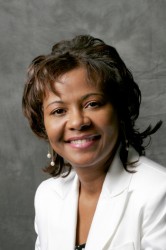A federal district court judge’s ruling that found an Illinois school district discriminated against gifted Hispanic students is just the latest example that “separate is inherently unequal,” says Vanderbilt University’s Donna Ford, who served as an expert witness for the plaintiff in the case.

Judge Robert Gettleman recently ruled that the Elgin, Ill., school district U-46 discriminated against Hispanic students by operating a separate program for gifted Hispanic students who learned English as a second language.
Ford, a leading expert on equitable practices in gifted education, says this verdict proves that discrimination, either intentional or unintentional, is illegal and will not be tolerated.
“This case sends a really important warning, and I do mean warning, to all of the 6,000 school districts in the nation, that you’ve got to clean up your act; you can’t run segregated programs,” Ford, a professor of education and human development at Vanderbilt University’s Peabody College, said. “Clearly, intentional discrimination is illegal, but the judge ruled that even if you are unintentionally discriminating, it could still be illegal and is unacceptable.”
In recent years, only 2 percent of students in the Illinois district U-46 gifted program have been Hispanic, despite the fact that the student population is more than 40 percent Hispanic. The underrepresentation of Hispanic students was due in part to the district’s separate gifted program for English language learners.
Ford says the judge’s decision renewed the Brown v. Board of Education principle that ‘separate is inherently unequal,’ referring to the landmark 1954 case that declared separate schools for white and black students unconstitutional.
“This is the most contemporary case of discrimination in education to date and proves that even unintentional discrimination closes the door for gifted minority students,” Ford said. “Even if you don’t mean to discriminate, that is not an excuse to keep doing business as usual.”
The court also found that the policies, procedures and instruments used by the district to screen and identify gifted students resulted in a “serious disparate impact” on Hispanic and black students.
“When you consider that nearly every school district in the U.S. is being confronted with underrepresentation, let them learn the dos and don’ts of discrimination from this one-of-a-kind court case,” Ford said. “If school districts aren’t proactive, it opens the door for litigation. Other districts need to learn from this case so they don’t commit the same errors.”
Ford is an expert on gifted students with an emphasis on minority children and youth. Her research focuses on recruitment and retention of diverse students in gifted education, underachievement among diverse students, equity issues in testing and assessment, multicultural education and issues in urban education.